It’s common knowledge that personal space should be respected, especially on a plane where room for maneuver seems to get smaller and smaller every time you travel. If you ask any flyer, they would probably agree that there should be a booklet in the compartment of every seat listing the dos and don’ts of neighboring with others on an aircraft.
One of them would definitely be redditor Jonvox, who recently sat next to a woman who felt entitled to control window shade all the way from her aisle seat. However, they weren’t going to let such behavior slide and came up with a three-act plan on how to get back at her.
In places lacking personal space, like an airplane, it’s important to respect it
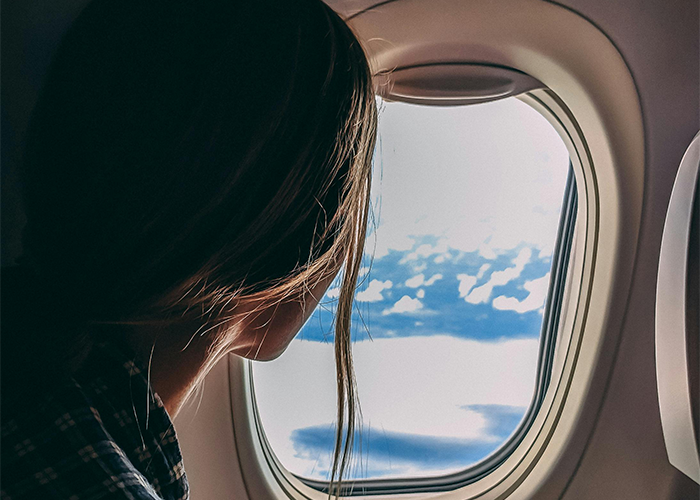
Image credits: Jason Toevs / pexels (not the actual photo)
However, this woman didn’t get the memo and felt entitled to control the window shade all the way from her aisle seat
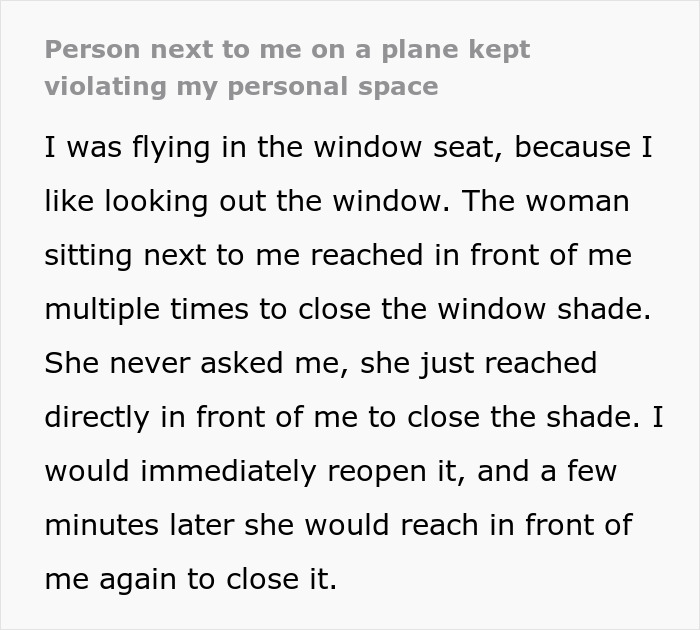
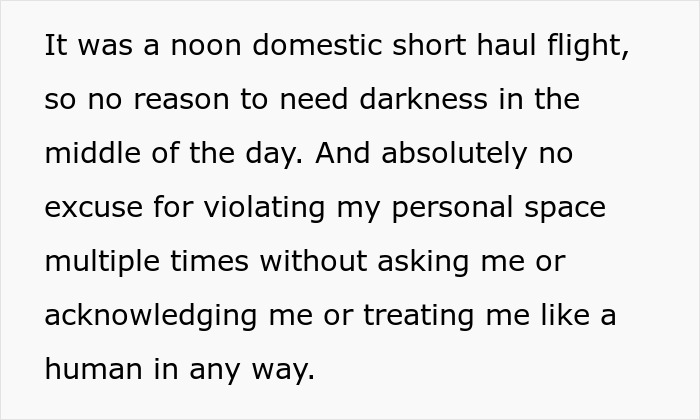

Image credits: Yulia Polyakova / pexels (not the actual photo)




Image credits: SHVETS production / pexels (not the actual photo)

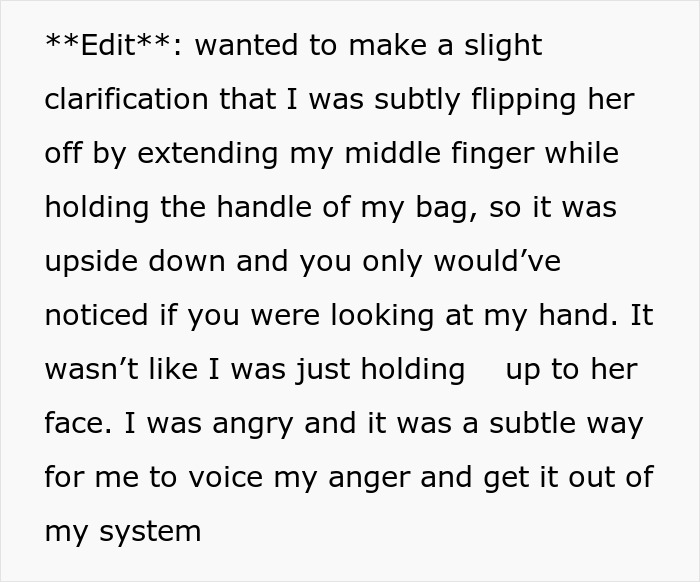
Image credits: jonvox
Lack of space often causes discomfort to passengers
It appears that the tight personal space on airplanes isn’t imaginary. Contrary to many beliefs, it’s not the cause of shrinking seat width but rather the tightening of passenger legroom. The technical term for this is seat pitch, which is the distance between rows, which often varies from airline to airline.
It’s estimated that the biggest US domestic carriers, like American, Delta, Southwest, and United, have lost around 2 to 5 inches in legroom since 2011. On cheaper carriers such as Spirit Airlines, it has decreased even more, dropping to 28 inches. Meanwhile, the average distance today is about 31 inches.
By doing this, it allows the companies to accommodate more passengers in airplane cabins and offer an overall cheaper airfare. However, it has resulted in frustration from flyers who endure discomfort from the lack of space. Some have even started questioning safety, as none of the US airlines’ economy seats meet the standards required for safety positions in case of an emergency.
In addition, federal regulations require that all people be safely evacuated in 90 seconds, and cramped seating significantly interferes with this timing. Under pressure from frustrated passengers, Congress instructed the Federal Aviation Administration (FAA) to consider adapting seat standards. In response to these directions, the FAA conducted a series of evacuation tests using 755 volunteers in Oklahoma.
Some of the trials used seats with a 28-inch pitch, one of the narrowest in the industry. The results reveal that “evacuations at a narrow seat pitch are safe for virtually all (99%) of the able-bodied population.” The FAA added, “The study results do not consider passenger comfort (or the lack thereof), which impacts a passenger’s sense of well-being during a flight.”

Image credits: Pew Nguyen / pexels (not the actual photo)
Passengers should know a few etiquette suggestions to ensure a more pleasant journey
Since the lack of personal space in airplanes doesn’t seem to be solved any time soon, passengers should know a few etiquette suggestions to ensure a more pleasant journey and not end up a victim of a petty revenge plan.
Therefore, experts share a few pointers on how to behave with neighboring people on a flight. The founder of a social network for travelers, Jeffrey Walsh, says that the infamous window shade should be mostly controlled by the person who is sitting next to it. “If you are looking out of the window and trying to enjoy the sunset, then you can keep it up to enjoy. However, you should take into consideration others around you,” he explains. This can include instances where you’re not looking out the window on a long flight and the sun is setting or you’re unstructured to close it by flight attendants.
Meanwhile, the armrests, without doubt, belong to the person who is sitting in the middle seat. Etiquette consultant Lisa Grotts notes, “If you’re in an aisle or window seat, yield to the passenger in between, and be careful when you move your elbows.”
The space in front of your seat is also mostly yours. It becomes shared when the person in front of you decides to recline their seat. Typically, how far back they can go should be negotiated with a quick question asking for permission. Meanwhile, the area under your seat belongs to you as long as your things or carry-on bags don’t push into another person’s space.
When an issue of personal space does occur, the owner of a consulting company and frequent flyer, Tres Roeder, advises against immediately fighting back and instead tries to negotiate a truce. He said, “We’re all smashed in economy class like sardines, so we should work together.”
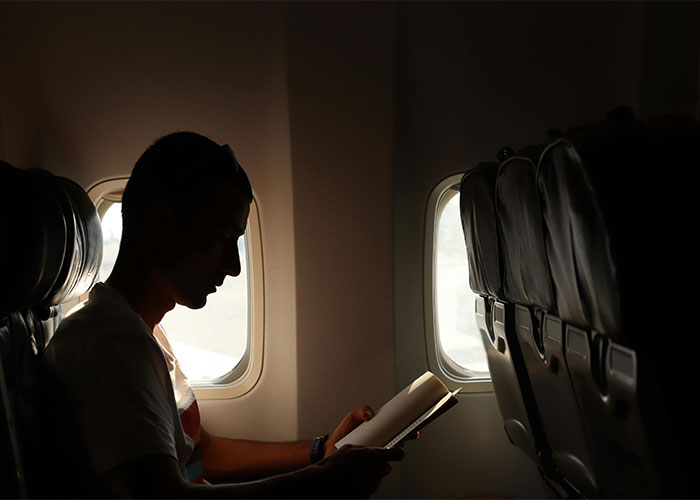
Image credits: Berkalp Turper / pexels (not the actual photo)
The author happily chatted with people in the comments, revealing more about the situation



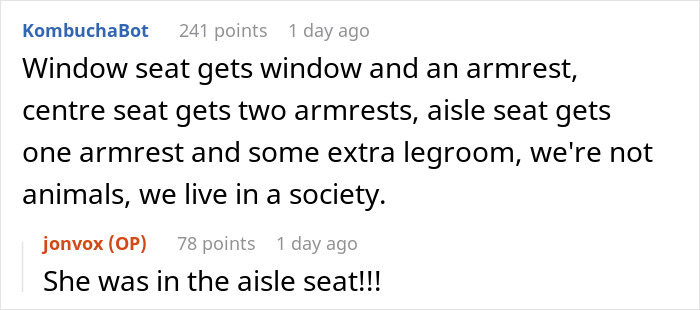

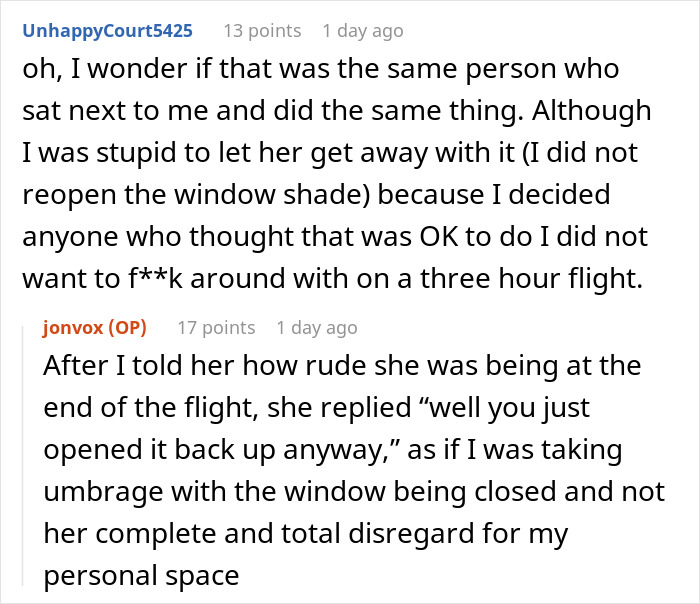


Some supported author’s actions








While others not so much



Some even shared similar stories
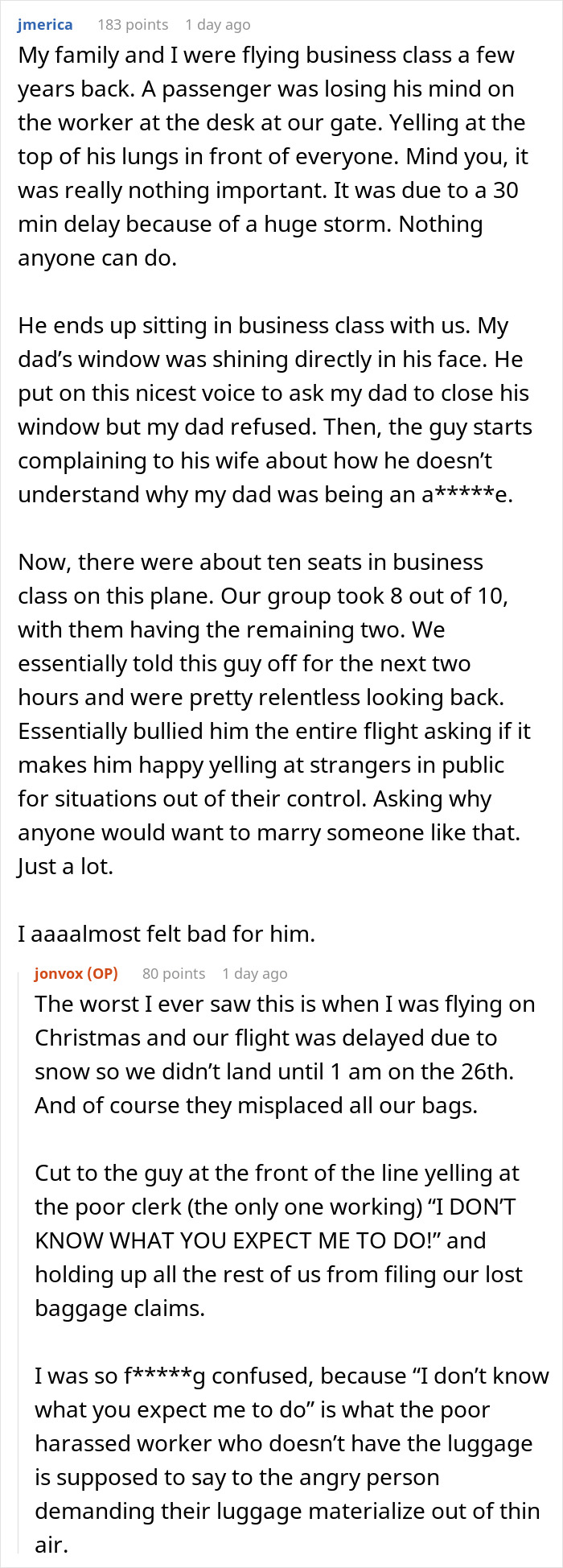


source https://www.boredpanda.com/violating-plane-personal-space-revenge/
ConversionConversion EmoticonEmoticon